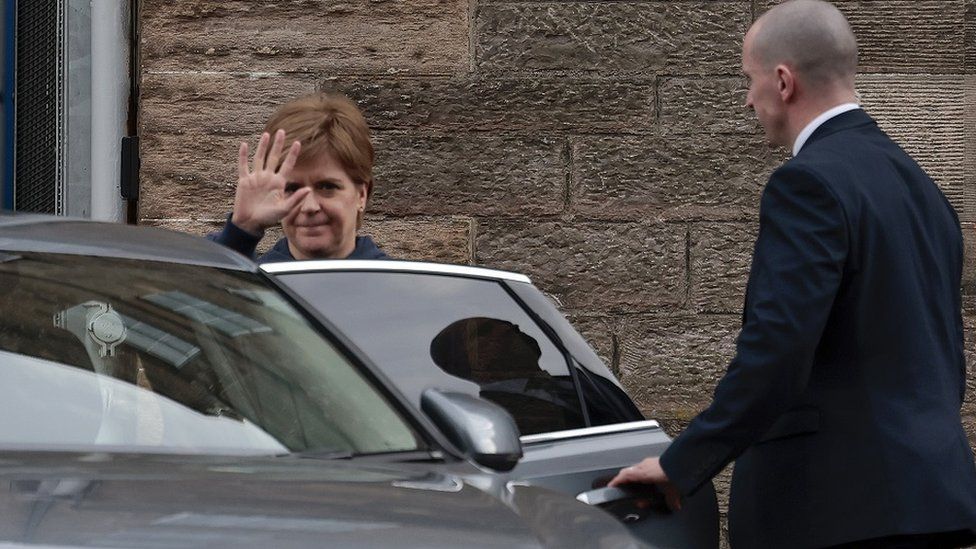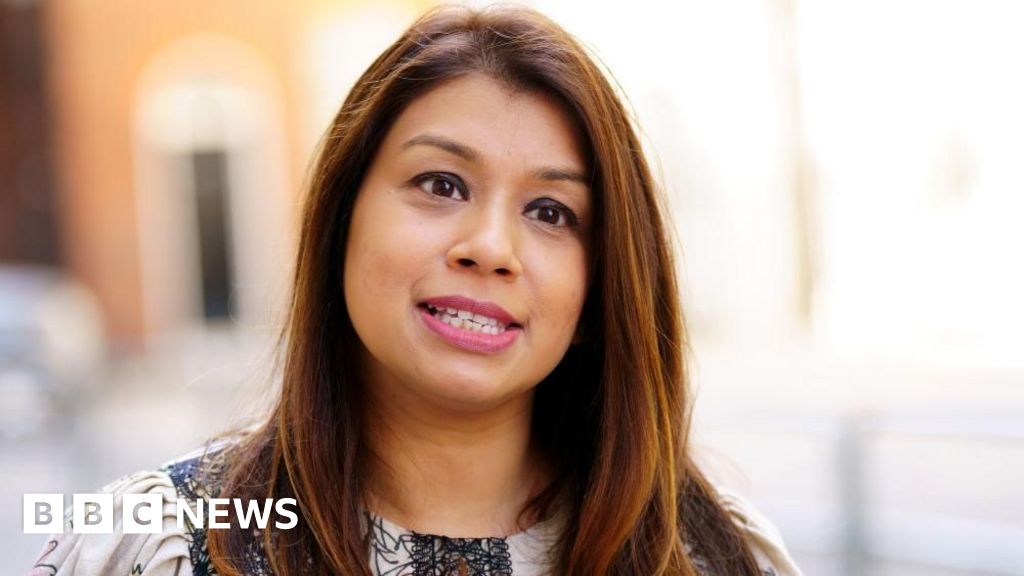ARTICLE AD BOX
 Image source, Getty Images
Image source, Getty Images
By Chris Mason
Political editor, BBC News
Scottish politics has, for years now, had an outsized voice in the wider UK political conversation.
The reason is simple: the prospect of Scottish independence.
With the Scottish National Party running the Scottish government and holding the vast majority of Scottish seats at Westminster, the question of Scotland's constitutional future has remained live.
And that - to state the obvious - matters massively in Scotland, but also everywhere else in the UK too.
Nicola Sturgeon regards it as an outrage that despite winning election after election, the path to another referendum is blocked.
Whether an outrage or not, it is a fact that securing that referendum any time soon appears to be slipping away.
So what happens next and where does it leave the cause of independence?
For me, the most striking thing about the first minister's announcement is the reaction privately from senior Conservative and Labour figures.
Does the UK's future, in its current form, feel safer now she is leaving?
"Very much so," a senior Conservative figure tells me.
"When your opponent is a proven winner and they decide to leave, that is good news" said one Labour figure, candidly.
Another Labour source said they had long felt their party required two things to happen to change the game of Scottish politics and give Labour - once so dominant here - a fighting chance of making a significant recovery:
- A sense Labour could win a UK general election
- And Nicola Sturgeon not being around
My source had assumed the former might happen before the latter.
But it's the latter that has happened already.
Image source, Getty Images
Image caption,The SNP have been in power at Holyrood for 15 years
As a result of winning elections, the independence question and the Covid pandemic, which projected her into living rooms around the UK almost daily - Nicola Sturgeon came to personify her party not just in Scotland but around the UK.
And the SNP became and remain a significant player on the UK political stage: the third political party at Westminster and one with the potential to hold the balance of power in a hung parliament.
But how, if at all, might that now change?
Awaiting the moment
Having been in power at Holyrood for 15 years and with options for another independence referendum looking increasingly limited, arguably political gravity is finally catching up with the SNP.
The party's opponents think Nicola Sturgeon leaving will chivvy that along.
But hang on a minute, say SNP insiders.
The Conservatives and Labour have been wrong before, and they will be wrong again, they argue.
The constitutional question remains live and unresolved, and changing leader doesn't change that, is the case they make.
It may even refresh it, for some.
Getting another independence referendum won't be easy.
Image source, Getty Images
Image caption,Independence supporters staged a protest at Holyrood after the Supreme Court rejected a referendum
The SNP awaits a moment, currently eluding it, when they can secure agreement with the UK government to grant another vote.
Scotland's future
A necessary, but not sufficient component in that is continuing to win elections and continuing to prove that Scottish public opinion remains, at the very least, split down the middle on the question of independence.
And so a key question is how the views of those whose support for independence is soft may change; those who are persuadable that, on balance, perhaps it's a good idea, but maybe it isn't.
How might their views be moulded by the contest to come and the leader to emerge from it?
The fascinating thing here is it is SNP members who now have - for the very first time -- the awesome responsibility of choosing a first minister on behalf of Scotland.
Around 100,000 people will have a vote, in a race whose rules and timetable will be decided at a hastily arranged meeting of the party's National Executive Committee on Thursday evening.
How will the collective instincts of some of those Scots most committed to the cause of independence express themselves in selecting the next figurehead for the cause, and how will they take that argument to the persuadable but not convinced?
Privately, senior SNP figures acknowledge Nicola Sturgeon's successor, whoever it is, won't her have stature, at least immediately.
The shop window of Scottish politics will soon be taking on a significant new look, and that can have a significant influence on what prospective customers make of what's inside.
To be clear, opinion polls suggest the SNP remains the colossus of Scottish politics.
But even a relatively modest retreat could have a big impact at the next general election, and a big impact on the argument about Scotland's future.
Image source, Getty Images
Image caption,Sir Keir Starmer is due to address the Scottish Labour conference this weekend
Scottish Labour gather for their conference in Edinburgh at the weekend, with the UK party leader Sir Keir Starmer among the speakers.
Winnable seats
Privately, Labour had hoped to be competitive in between 12 to 15 Scottish seats at the next UK general election.
To put that in perspective, the last time they won a general election, in 2005, they won 41 seats in Scotland.
They now hope the list of winnable seats gets a bit bigger.
And senior Conservatives, passionate about the future of the union, privately take at least some comfort on the constitutional question from Labour's soaring opinion poll figures.
They ponder that if left-leaning Scots, currently drawn to the SNP, do return to Labour, it could depress support for independence sufficiently to remove it as the dominating topic at the heart of Scottish politics.
What is clear is Scottish politics is changing, and changing in a big way.
And that matters wherever you are in the UK.

 1 year ago
61
1 year ago
61








 English (US) ·
English (US) ·